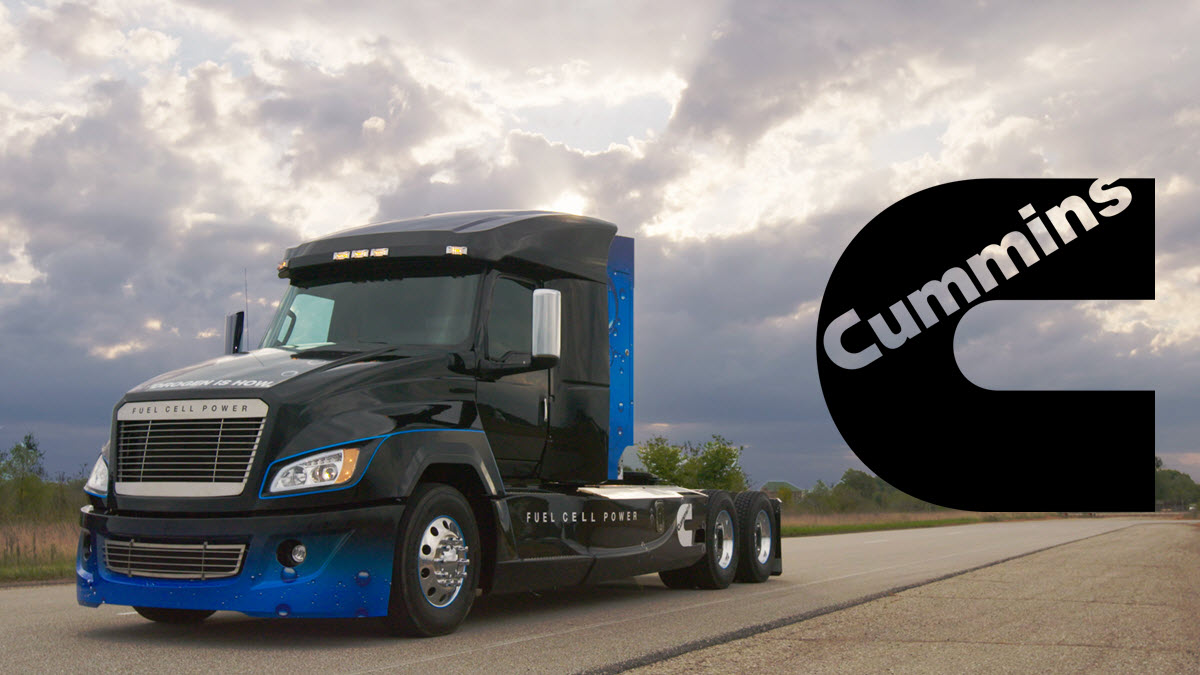
In the race to develop more sustainable and renewable energy sources, hydrogen has re-emerged as a potential key solution in the transition to zero-emission mobility, and the world is talking about it.
Tom Linebarger, the Chairman and CEO of Cummins recently joined top hydrogen technology innovators to discuss the future of hydrogen, both in commercial and industrial engine applications, during a virtual hydrogen forum hosted by the International Partnership for Hydrogen and Fuel Cells in the Economy (IPHE).
The IPHE forum brought together a number of industry and government leaders to identify the challenges, opportunities, policies, and mechanisms to accelerate global-scale deployments of hydrogen technologies. Among the panel were top industry executives from Engie North America, Nel, Hyundai Motor Group, and Air Liquide.
Watch: Global Hydrogen Forum 2020
During the forum, Linebarger emphasized there is a need for additional investment in hydrogen by the U.S. government and industry, while commending the work that has been led by the U.S. Department of Energy.
“With a world that is feeling the economic ramifications of a global pandemic, I believe that governments and industries around the world need to make significant investments in order to reinvigorate the global economy,” said Linebarger. “When it comes to making hydrogen viable and to speed adoption, we need investment in hydrogen production as well as fueling infrastructure and funding to deploy fuel cell vehicles and equipment.”
Linebarger mentioned that more and more public companies are making commitments like Cummins to be carbon neutral by 2050 and that hydrogen is part of the path forward to meeting that goal. Investors increasingly understand the role that hydrogen can play in reaching this objective and their support of businesses pursuing the technology is growing.
“Scaling up existing hydrogen technologies will deliver competitive low-carbon solutions across a wide range of applications by 2030 and may even offer competitive low-carbon alternatives to conventional fuels in some segments,” said Linebarger. “To reach this scale, there is a need for investment, policy alignment, and demand creation.”
The panel all agreed that hydrogen is an important power solution for applications in both on- and off-highway applications, and that hydrogen is a solution that can move us closer to a decarbonized world. It will require public and private investment across the globe and coordination among public and private entities to speed economic viability and adoption.
Already a leader in advanced diesel, natural gas and electric technologies, Cummins is rapidly growing its hydrogen capabilities and the company continues to deepen its expertise in fuel cell technologies. Cummins uses fuel cell and hydrogen technologies to power a variety of applications, including transit buses, semi-trucks, delivery trucks and passenger trains, and has made several announcements in the past year related to fuel cell technologies. These include the acquisition of Hydrogenics Corporation in September 2019, providing Cummins with both proton exchange membrane (PEM), alkaline fuel cells, and electrolyzers used to generate hydrogen. Cummins has also invested in LOOP Energy, signed a memo of understanding with Hyundai Motor Company, and invested in the development of solid oxide fuel cells.
Source: Cummins
Read the most up to date Fuel Cell and Hydrogen Industry news at FuelCellsWorks




